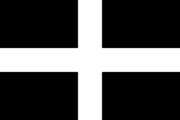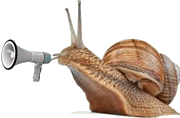| français | English | Cymraeg | Brezhoneg |
|---|---|---|---|
| se vendre | to sell out | gwerthu rhth i gyd; gwerthu’r cwbl | gwerzhañ holl (?) |
| la sueur | sweat | chwys | c’hwezenn |
| suer; transpirer | to sweat | chwysu | c’hweziñ |
| suer/transpirer comme un boeuf | to sweat like a pig | chwysu fel mochyn/ceffyl | |
| la scène musicale | the music scene | man cerddoriaeth (?) | |
| ouvert aux éléments | open to the elements | agor i’r gwynt a glaw; agor i’r tywydd mawr | |
| le pavé | paving stone | carreg balmant; fflacsen | pavez |
| la gare routière/d’autobus | bus station | gorsaf fysus | gar ar c’hirri-boutin |
Category: Breton (Brezhoneg)
Les mots de la semaine
| français | English | Cymraeg | Brezhoneg |
|---|---|---|---|
| avoir une idée en tête; être obnublié par qch | to have a bee in one’s bonnet | chwilen yn dy ben | |
| être imbu(e) de soi-même | to be full of oneself | bod yn llawn ohonat ti dy hunan | |
| imbiber qch de | to soak sth in | gwylchu/mwydo rhwybeth mewn | intrañ; spluiañ; gouzourañ |
| s’imbiber de | to become saturated with | dirlenwi efo/gyda | gouzourañ |
| le noisetier | hazel (tree) | cyll | kelver |
| la dépression; la cuvette | hollow | pant; cafn; ceudod | izelder |
| le tourbillon | whirlpool | trobwll; pwll tro | mordro(l)enn(ad); korvent; troenn-vor |
| le mode de comportement | pattern of behaviour | patrwm ymddygiad | patrom emzalc’h |
| l’élastique (m) | rubber band | band rwber/lastig | stirenn; lastikenn |
Les mots de la semaine
| français | English | Cymraeg | Brezhoneg |
|---|---|---|---|
| le poney (des îles Shetland) | (Shetland) pony | merlen; merlyn; poni (Shetland) | pone (Shetland) |
| la mouette tridactyle | kittiwake | gwylan goesddu | karaveg |
| l’ornithologue | ornithologist | adaregwr, adaregydd | evnoniour |
| l’orinthologue amateur | bird-watcher; twitcher | gwyliwr adar; sbeciwr ar adar | evnoniour amatour |
| la menuiserie | woodwork (joinery) | gwaith coed | munuzerezh |
| sortir d’un peu partout | to crawl out of the woodwork | ||
| la charpenterie | carpentry | gwaith coed/saer; saernïaeth | frammerezh; kilvizerezh |
| l’ébénisterie (f) | cabinetmaking | gwaith saer | ebenouriezh |
| le cil | eyelash | blewyn amrant; blewyn llygad | (blev) malvenn |
| le sourcil | eye brow | ael | abrant |
| pire | worse | gwaeth | gwashoc’h |
| empirer | to worsen | gwaethygu; mynd yn waeth | gwashañ |
| ne faire que empirer | to get worse and worse | mynd o ddrwg i waeth | gwashoc’h-gwashañ |
| au pire | if the worst comes to the worst | os daw hi i’r pen; ar y gwaethaf | ar gwashañ |
Les mots de le semaine
| français | English | Cymraeg | Brezhoneg |
|---|---|---|---|
| le mine (de charbon) | (coal) mine | mwynfa (glofa; pwll glo) | poull-glaou |
| le mine | (explosive) mine | ffrwydryn | min |
| se venger (de qn) | to take one’s revenge (on sb) | dial (ar rywun) | venjiñ |
| ingénieux; astucieux | clever (device, system) | dyfeisgar; medrus | ijinek; barrek |
| à double vitrage | double-glazed | dwbl-wydrog | gweradur doubl |
| le double vitrage | double glazing | ffenestri dwbl; gwydro dwbl | |
| le store | (window) blind | cysgodlen; bleind | rideoz |
| le volet | (window) shutter | caead | stalaf |
| le rideau | curtain | llen; cyrten | rideoz |
| le valeurs mobilières; les titres | stocks and shares | stociau a chyfrannau | teulioù |
| toxicomane; accro | addict | adict | drammgaezhiad |
| l’ardoisière (f) | slate quarry | chwarela llechi | meinglazeg |
| la déesse | goddess | duwies | doueez |
| la lance | spear | gwaywffon | goaf |
| la hanche | hip | clun | lez |
| nier; refuser | to deny | gwadu | nac’hañ |
| creuser; bêcher | to dig | cloddio; palu | kleuzañ; palarat |
Bouder
I learnt a new word in French today: bouder, which means to sulk; to pout; to avoid; to turn one’s nose up at (sth); to refuse to have anything to do with (sb).
Related expressions include:
– boudant = sulking; pouting
– bouder son plaisir = to deny oneself a good thing; to sulk one’s pleasure (never heard this one before – have you?)
– ne pas bouder son plaisir = to enjoy fully; to enjoy without restraint
– se bouder = not to be on speaking terms
– on ne boudera pas = we shall not complain (about); we shall not avoid
It came up in my Breton course – the Breton equivalent is mouzhat – and appears in the sentence, Perak ‘ta, klañv eo pe o vouzhat emañ? (Why? Is she sick or is she sulking?).
The origins of the English words pout and sulk are unknown, according to the OED.
Are there any interesting expressions featuring the equivalents of these words in other languages?
Les mots de la semaine
| français | English | Cymraeg | Brezhoneg |
|---|---|---|---|
| la surabondance | superfluity | gormodedd | gourfaoter |
| superflu | superfluous | gormodol | didal; diouverus |
| le pari | a bet | bet; mentro arian | pariadenn |
| parier | to bet | betio; mentro; chwarae hap | pariañ |
| les futilités; les bagatelles | trivia | pethau dibwys/diwerth | raneoù |
| la dune de sable | sand dune | twyn tywod | tevenn (traezh) |
| le gage | pawn (in chess) | gwerinwr | gouestl |
| le paon [pɑ̃] | peacock | paun | paun |
| la paonne [pan] | peahen | peunes | paunez |
| la pantoufle | slipper | sliper; llopan; esgid nos | pañtoufl |
| pantoufler | to switch from civil servant to the private sector | luduenniñ | |
| pantouflard | stay-at-home | cartrefol; diantur; difenter | ludu |
| se relaxer | to chill out | ymlacio | dibrezañ; dizalc’hen |
| le soap; le feuilleton | soap opera | sioe sebon; opera sebon | heuliadenn |
| tour à tour | alternately | bob yn ail | a bep eil |
| l’échange | exchange | cyfnewid | eskemm |
| intermédiaire | go-between | canolwr | hanterour |
| le relais; l’auberge | hotel, inn | llety, gwesti | leti; ostaleri |
| le relais | (electronic) relay | relái | relae |
Les mots de la semaine
| français | English | Cymraeg | Brezhoneg |
|---|---|---|---|
| le gratte-papier | pen(cil)-pusher | clercyn | louf-torchenn |
| l’écurie (f) | stable (for horses) | ystabl | kraou (-kezeg) |
| la fausse couche | miscarriage | erthyliad (naturiol) | kolladenn |
| l’erreur judiciaire | miscarriage of justice | aflwyddiant cyfiawnder | fazi barnerezh |
| le mal d’altitude | altitude sickness | salwch pen mynydd | |
| le vertige | vertigo | pendro; pensyfrdandod | pennfoll |
Goel Peran Lowen!

Today is St Piran’s Day and a special day in Cornwall as Piran is regarded as the patron saint of Cornwall (and of tin miners), along with Saint Michael and Saint Petroc. Piran or Perran was an abbot of possibly Irish origin who lived in Cornwall in the early 6th century and later became a saint. His flag (see top right) is a symbol of Cornwall.
Here are a few Cornish phrases related to today (provided by Sam Brown)
– Goel Peran Lowen – Happy Saint Piran’s Day;
Gŵyl Peran Llawen (Welsh); Gouel Peran laouenn (Breton)
– Dydh da ha goel Peran lowen dhis! = Hello and happy Saint Piran’s day!
– A vynnydh ta pasti kernowek? = Would you like a Cornish pasty?
– Gwell yw genev pasti keus hag onyonenn = I’d prefer a cheese and onion pasty.
I haven’t started learning Cornish yet, put have picked up odd bits and pieces of the language and can understand it to a limited extent thanks to my knowledge of Welsh and Breton.
Are any of you learning Cornish?
Les mot de la semaine
– un compte courant = current account = cyfrif cyfredol = kont-red
– un compte d’épargne / de dépôt = savings account = cyfrif cynilion = kont-espern
– l’épargne, l’économie = savings = cynilion = arboell
– économiser = to save (money) = cynilo; arbed = armerzhañ
– l’intérêt (m) = interest = llog = laz
– le taux d’intérêt = interest rate = cyfradd llog = feur kampi
– l’assurance-vie (f) = life insurance = yswiriant bywyd = asurañs war ar vuhez
– les nouveaux visages (m); de nouvelles têtes (f) = new faces = gwynebau newydd = pennoù nevez
– retenir son souffle = to hold one’s breath (lit/fig) = dal dy wynt
– concorder = to fit (facts) = cytuno (efo ffeithiau)
– poseur (de tapis) = (carpet) fitter; poseur = fittiwr (carpedi)
– le pépin = glitch, snag, hitch; pip; umbrella = rhwystr; dincodyn; ymbarél = skoilh; disglavier
– greffer = to graft = impio = imboudañ
Slugs and snails and owls

Here some of the words that came up this week at the polyglot conversation group, along with a few related words and expressions.
Kernewek
bulhorn = snail
gluthvelhwenn; melhwenn = slug
kowann; oula = owl
mordardha = to surf
modardh = surf
Cymraeg
malwoden; malwen (malwod, pl) = snail
gwlithen; malwen ddu = slug
tylluan; gwdihŵ = owl
brigdonni; brigo tonnau; reidio tonnau; syrffio = to surf
pori = to surf (the web)
brigdonnwr; brigwr tonnau; syrffiwr = surfer
ewyn môr; brig y don; ewyn y don = surf
talp = nugget, chunk, lump, byte
cnepyn = nugget, nodule, lump, pommel
gwrthrychedd; gwrthrycholdeb = objectivity
Brezhoneg
melc’houed; melc’hwed; mailgorn; melc’houedenn-grogennek = snail
melc’houed; melc’hwedenn; likoch = slug
penn-kazh; toud; korverig = owl
Français
doué(e); de talent = talented
avoir du talent = to be talented
un musicien de talent = a talented musician
aux talents multiples = multi-talented
avoir plusieurs cordes à son arc = to have many tricks up one’s sleeve (be multi-talented)
elle est extrêmement douée = she is extremely talented
l’escargot (f) = snail
la limace = slug
le hibou; la chouettte = owl
Deutsch
die Streichholzschachtel = matchbox
der Streichholzschächtelchen = little matchbox
die Schnecke = snail
das Schneckengehäuse = snail shell
die Nacktschnecke = slug (“naked snail”)
die Eule = owl